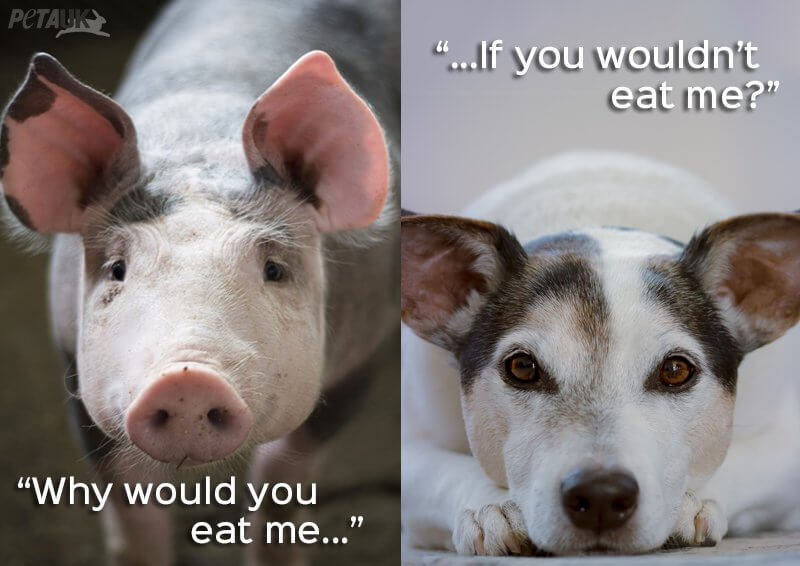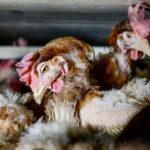In recent years, discussions surrounding veganism have permeated various facets of society, particularly concerning the ethical treatment of animals. At the heart of this discourse lies a recurring theme: animal cruelty. Vegans frequently underscore the atrocities that animals endure within industrial farming systems and beyond, prompting many to ponder—why do vegans always talk about animal cruelty? Perhaps it is time we seriously consider their perspective.
To begin, it is vital to delineate what constitutes animal cruelty. This encompasses a spectrum of abusive actions inflicted upon animals, ranging from neglect and abandonment to overt acts of violence. In industrial farming, animals are often subjected to inhumane living conditions. Confinement in cramped, unsanitary environments, lack of proper medical care, and the absence of natural behaviors contribute to their suffering. This stark reality is one of the most cited reasons vegans advocate for a plant-based lifestyle.
The ethical implications of consuming animal products cannot be overstated. For many vegans, the consumption of meat, dairy, and eggs equates to complicity in an ever-expanding cycle of exploitation that runs contrary to principles of compassion and empathy. When one understands the brutal realities embedded in animal agriculture, it becomes difficult to remain indifferent. The proactive stance taken by vegans can, therefore, be seen as a moral imperative—a call for a collective awakening toward mindful consumption.
Furthermore, one must consider the significant mental and emotional toll that this type of advocacy can impose on individuals who champion animal rights. Engaging with graphic depictions of animal cruelty is often a catalyst for vegans in their decision-making processes. Documentaries, books, and social media campaigns frequently bring these issues to light, which many may find distressing yet necessary. The visceral reactions elicited by such content foster a sense of urgency regarding activism. Such discussions are not merely about promoting a vegetarian or vegan lifestyle but are symptomatic of a deeper philosophical concern regarding our responsibilities as stewards of the planet.
Moreover, the environmental implications of animal agriculture further bolster the arguments presented by vegan advocates. Livestock farming has been linked to deforestation, loss of biodiversity, and significant greenhouse gas emissions. The correlation between animal farming and climate change underscores the premise that cruelty extends beyond just the animals involved; it is intimately connected to global ecosystems. By addressing both animal welfare and environmental sustainability, vegans are advocating for an interwoven approach to addressing pressing global issues. In this regard, listeners are invited not just to hear but to engage with the multilayered implications of their dietary choices.
In addressing the question of motivation, it is paramount to recognize that the discourse surrounding animal cruelty is often viewed through a lens of advocacy. Many vegans perceive animal rights as a social justice issue—paralleling movements for racial, gender, and economic justice. Advocating against animal cruelty is an extension of a broader commitment to compassion and equity, suggesting that the inherent value of all sentient beings must be respected. This framework allows a diverse array of beliefs and personalities to converge toward a singular cause, making the vegan movement a particularly compelling narrative in the larger tapestry of social reform.
However, the dialogues surrounding veganism and animal cruelty often become polarizing. Conversations can devolve into heated debates where emotions run high, and misunderstandings become prevalent. Critics may dismiss the concerns of vegans as extreme or fanatic, overlooking the well-documented rationale behind these viewpoints. This tendency to polarize serves to stifle productive conversations and perpetuates a cycle of misunderstanding. Thus, it becomes essential for both sides to foster empathy and constructive dialogue, recognizing that indeed, listening to opposing viewpoints can facilitate greater awareness and, ultimately, progress.
In recognizing the implications of animal cruelty, it is also essential to consider the role of education and public discourse. Schools, institutions, and community organizations have a profound opportunity to integrate the principles of animal welfare into their curriculums, reframing discussions surrounding food choice and ethics. Exposure to the realities of animal agriculture can broaden perspectives and foster empathy in younger generations. As a society, we ought to facilitate discussions that challenge normative preferences and illuminate alternatives, creating a more informed public ready to tackle the pressing issues at hand.
In conclusion, the frequent ethos surrounding animal cruelty among vegans is not merely idiosyncratic, but rather a poignant reflection of profound ethical dilemmas that demand our attention. The discourse surrounding animal welfare is multifaceted—intersecting with broader conversations concerning environmental stewardship and social justice. Ignoring these discussions does a disservice to the possibility of meaningful change. As we navigate the complexities of food systems, recognizing the ethical treatment of animals should be of paramount concern. Perhaps we ought to listen, reflect, and reshape our understanding of our responsibilities to all living beings. When we embrace these dialogues with an open mind, we invite a path toward greater understanding and compassion.









